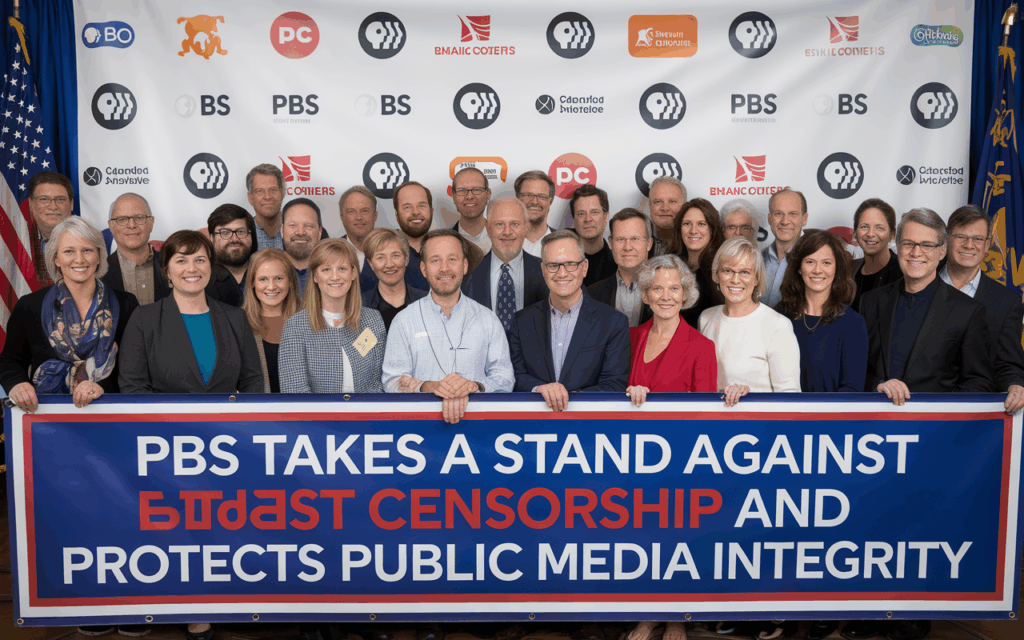PBS Takes a Stand: Fighting Back Against Censorship! ✊🎥
In a significant and bold move, the Public Broadcasting Service (PBS) has recently filed a lawsuit against the Trump administration, contesting executive orders that aim to cut federal funding due to alleged "bias" in its programming. This legal battle follows a similar suit from National Public Radio (NPR) and raises crucial questions about freedom of speech and the role of public media in America. 📺⚖️
Setting the Scene
Just days after NPR took the initiative to sue the administration, PBS added its voice to the fray, arguing that the proposed funding cuts violate the First Amendment. The lawsuit challenges President Trump's assertion that these public broadcasting services exhibit bias in their reporting. In his executive orders, he described PBS as "corrosive" and expressed a desire to limit federal funding as part of a mandate to ensure that taxpayer dollars only support impartial media. Government spokespersons have followed up with assertions that the decision is rooted in protecting the integrity of taxpayer investments. 💰✋
Free Speech and Editorial Independence
PBS's lawsuit highlights the danger of viewpoint discrimination, asserting that the administration's actions amount to an infringement upon editorial freedom. In their words, "the Constitution and laws forbid the President from serving as the arbiter of the content of PBS's programming." This sentiment echoes throughout the media landscape today, where the lines between funding, censorship, and editorial integrity are becoming increasingly blurred.
In their statement, PBS underscored that this lawsuit is a necessary step to protect not just their institution, but the overarching principle of public media's independence in an era where political narratives can sway the establishment of facts and information. 📰🔍
A Broader Implication for Public Media
At stake is more than just funding; it’s about preserving the integrity of public media as a platform that thrives on balanced and credible reporting. The Corporation for Public Broadcasting (CPB), which provides around $500 million annually to NPR and PBS, is facing scrutiny like never before. Cutting off funding based on a subjective interpretation of bias could lead to a dangerous precedent.
As PBS puts it, "Americans have the right to expect that their tax dollars fund only fair, accurate, unbiased, and nonpartisan news coverage."
Moving Forward: What Can We Expect?
As the legal battles unfold, many supporters of public media are rallying behind PBS and NPR, articulating their belief in the essential role these services play in informing the public. The importance of a well-resourced, diverse media landscape cannot be understated, and the implications of this legal showdown will be felt across the industry for years to come.
In an age of increasing media polarization, the stand against suppression cannot be overlooked. It is crucial for all of us to remain informed, engaged, and supportive of institutions that strive to uphold journalistic integrity. 🗣️💪
What are your thoughts on this ongoing battle for public media funding? Is it a necessary fight for editorial freedom, or an overreach by public broadcasters? Let’s chat in the comments! 💬👇
#PublicMediaMatters #FreedomOfSpeech

More Stories
Exciting News: The Summer I Turned Pretty is Becoming a Movie
Reflecting on Robert Redford’s Legacy of Integrity and Artistry
Sara Rivers Appeals Dismissal of $60 Million Lawsuit Against Sean Combs: A Fight for Justice in the Entertainment Industry